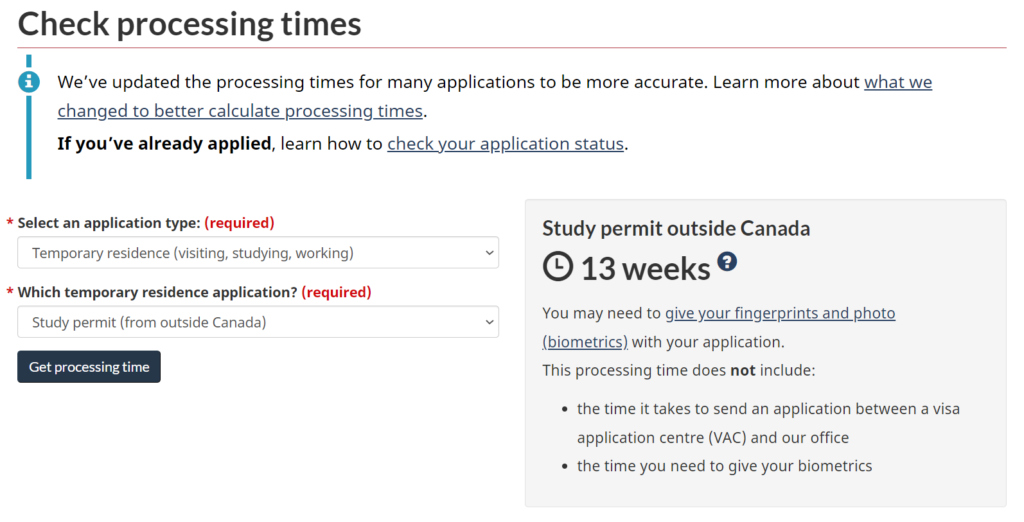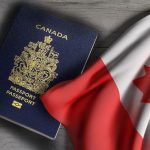On Thursday, October 6, the Canadian Embassy in India released an important update for students who will be travelling to Canada this fall/winter for academic purposes.
The Embassy stated in the update that a border services officer will review your documents and also asked students to prepare to show that your DLI (Designated learning institution) has granted them permission to arrive late OR that they have received a deferral.
“ATTN Students: If you are going to Canada this fall/winter, a border services officer will review your documents. Be prepared to show that your DLI has allowed you to arrive late OR that you have received a deferral,” said Canada Embassy in a Tweet.
(1/2) 📢 ATTN Students: If you are going to Canada this fall/winter, a border services officer will review your documents. Be prepared to show that your DLI has allowed you to arrive late OR that you have received a deferral. pic.twitter.com/JZErrv19VW
— Canada in India (@CanadainIndia) October 6, 2022Advertisement
The Embassy also advised students to keep in mind that even though some study permits allow you to work in Canada, you can only begin working once your course of study has begun, not before.
It is important to note that international students may arrive in Canada one month before the start of their course, but no earlier. They are, however, not permitted to work in Canada until their course is completed.
While studying in Canada, international students have the following employment options.
Studying and working in Canada as an international student
You may work on campus without a work permit if you have a study permit and are enrolled full-time at an eligible institution. International students can work up to 20 hours per week while studying and 40 hours per week while on vacation.
Please Note: The IRCC on Friday, October 07 issues an update and said that Canada has temporarily lifted the limit on off-campus work hours for international students.
1. Work on Campus
You can only begin working in Canada once you begin your studies. You are unable to work until your studies begin. You can work as an international student in Canada if your study permit includes a provision allowing you to work on or off campus.
2. Work off Campus
Before you begin working, you and your employer must ensure that you can work off campus without a work permit. If you begin working off campus but fail to meet the requirements, you may be required to leave Canada.
- If you’re able to work during your studies, it’ll say so in the conditions on your study permit.
- If you’re eligible for off-campus work, you don’t need a work permit.
3. Work as a co-op student or intern
Some study programs include work experience as part of their curriculum. You can apply for a co-op or intern work permit if:
- you have a valid study permit
- work is required to complete your study program in Canada
- you have a letter from your school that confirms all students in your program need to complete work placements to get their degrees, and
- your co-op placement or internship totals 50% or less of your study program
4. Help your spouse or common-law partner work in Canada
Your spouse or common-law partner may be eligible for an open work permit if you:
- have a valid study permit
- are eligible for a post-graduation work permit (PGWP) and
- are a full-time student at one of these types of schools:
- a public post-secondary school, such as a college or university, or CEGEP in Quebec
- a private college-level school in Quebec
- a Canadian private school that can legally award degrees under provincial law (for example, Bachelor, Masters or Doctorate degree)
5. Work in Canada after graduation
After completing your studies, you may be able to work temporarily or even permanently in Canada. A work permit is required to work in Canada after graduation. The work experience you gain may help you qualify for permanent residence.
Must Read: 7 Must-Have Documents For Canada Student Visa Applications
Processing times for Study permits outside Canada
According to the IRCC website, it will take 13 weeks to process your request for a study permit outside of Canada. You may be required to submit fingerprints and a photograph (biometrics) with your application.
It may be noted that this processing time does not include:
- the time it takes to send an application between a visa application centre (VAC) and our office.
- the time you need to give your biometrics.

This processing time indicates how long it took us in the past to process the most complete applications. If your application is incomplete, it may be delayed or returned.
Your processing time begins when IRCC receive your complete application and ends when we reach a decision. It may vary depending on the number of applications received.
Follow and connect with us on Facebook, Twitter, LinkedIn, Instagram and Google News for the latest travel news and updates!





